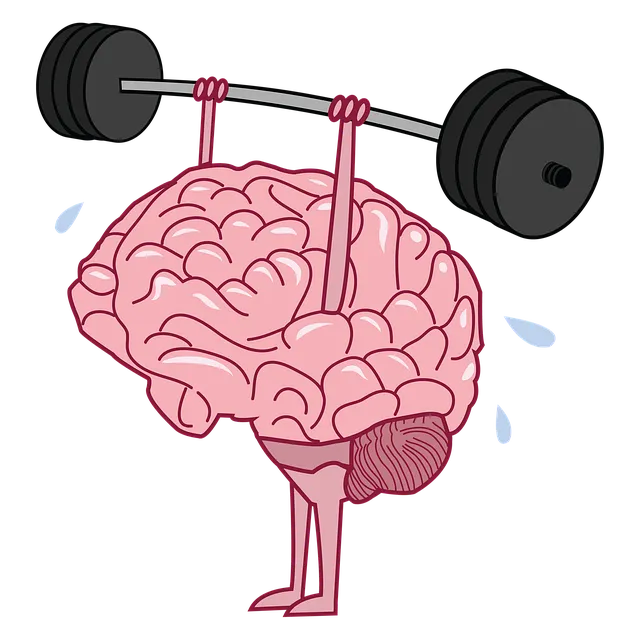The Englewood Kaiser Permanente mental health center offers comprehensive programs promoting mental wellness, with a focus on self-care routines, mindfulness meditation, and tailored interventions. Their evaluation methods, combining participant reports, clinical assessments, and behavioral observations, ensure program effectiveness and adaptability to diverse needs. Positive reviews highlight their holistic approach, patient satisfaction, and innovative strategies for emotional regulation. Through continuous improvement based on feedback from participants and community members, the center enhances its services, including mental wellness podcasts, training for healthcare providers, and cultural competency initiatives.
Mental wellness programs have become increasingly vital in today’s fast-paced world, with organizations like Englewood Kaiser Permanente leading the charge. This article delves into the crucial aspect of evaluating these programs, exploring various methodologies to assess their effectiveness. We present a comprehensive overview, including a case study on the Englewood Kaiser Permanente mental health center reviews, and offer best practices for continuous improvement based on feedback. Understanding and measuring the impact of these initiatives is essential for fostering healthier work environments.
- Understanding Mental Wellness Programs: A Comprehensive Overview
- The Role of Evaluation in Measuring Program Effectiveness
- Methodologies for Assessing Mental Health Center Performance
- Case Study: Englewood Kaiser Permanente Mental Health Center Reviews
- Best Practices for Continuous Improvement Based on Feedback
Understanding Mental Wellness Programs: A Comprehensive Overview

Mental wellness programs encompass a wide array of initiatives designed to promote and maintain psychological well-being. These programs, such as those offered at renowned centers like Englewood Kaiser Permanente mental health center, aim to prevent and address mental health disorders by fostering resilience, enhancing coping mechanisms, and encouraging self-care practices. The effectiveness of these interventions is crucial, making evaluation methods essential tools for understanding their impact.
Self-Care Routine Development for Better Mental Health is a key component often integrated into comprehensive programs. Activities like mindfulness meditation, as practiced at many mental health centers, teach individuals to be present with their thoughts and emotions without judgment. Through regular practice, this can lead to improved stress reduction, increased emotional regulation, and enhanced overall mental wellness. Evaluating these programs involves measuring changes in participant self-reports, clinical assessments, and observable behaviors, providing insights into the effectiveness of different interventions tailored to individual needs.
The Role of Evaluation in Measuring Program Effectiveness

Evaluation plays a pivotal role in assessing and enhancing the effectiveness of mental wellness programs, including those offered at renowned centers like Englewood Kaiser Permanente. By employing robust evaluation methods, professionals can objectively measure the success and impact of interventions aimed at improving mental health outcomes. This process involves collecting and analyzing data to identify what works, what needs improvement, and how resources can be allocated more efficiently.
At Englewood Kaiser Permanente, for instance, reviews highlight the importance of a comprehensive evaluation strategy in their Community Outreach Program Implementation initiatives. By evaluating programs that focus on mood management and mental health policy analysis and advocacy, the center can ensure that services are tailored to meet the unique needs of the community. This data-driven approach not only enhances program quality but also contributes to evidence-based mental health practices, ultimately fostering better outcomes for individuals seeking support.
Methodologies for Assessing Mental Health Center Performance

Evaluating the performance of mental health centers is a multifaceted process that requires robust methodologies to ensure effectiveness and quality care. One such example is the Englewood Kaiser Permanente mental health center, which has garnered positive reviews for its holistic approach. These evaluations often involve quantitative and qualitative assessments, including patient satisfaction surveys, clinical outcome measures, and structured interviews. By analyzing data from these methods, healthcare administrators can gain valuable insights into the center’s strengths and areas for improvement.
For instance, the Englewood Kaiser Permanente mental health center may employ a Mental Wellness Podcast Series Production to share patient experiences and success stories, fostering transparency and building trust with the community. Additionally, Healthcare Provider Cultural Competency Training is crucial in addressing diverse patient needs and ensuring inclusive care. These evaluations are essential steps towards enhancing Anxiety Relief and overall mental wellness within the center’s services.
Case Study: Englewood Kaiser Permanente Mental Health Center Reviews

The Englewood Kaiser Permanente Mental Health Center has been a subject of interest in the healthcare industry due to its innovative approach to mental wellness programs. Reviews of this center highlight its unique case study, showcasing successful implementation of various strategies for emotional regulation and stress reduction methods among patients. The center’s focus on holistic care, tailored interventions, and collaborative therapy sessions has led to positive outcomes, as evidenced by patient satisfaction rates.
These evaluations underscore the importance of burnout prevention strategies for healthcare providers, a critical aspect often overlooked in mental health settings. By employing evidence-based practices and fostering an environment that supports emotional well-being, the Englewood Kaiser Permanente Mental Health Center serves as a model for other institutions aiming to enhance their mental wellness program evaluation methods. Its success lies in integrating diverse techniques, from cognitive-behavioral therapies to mindfulness practices, catering to individual patient needs.
Best Practices for Continuous Improvement Based on Feedback

Englewood Kaiser Permanente mental health center reviews highlight the importance of continuous improvement in mental wellness program evaluation. Gathering and acting upon feedback from participants, healthcare providers, and community members is a best practice that fosters growth and refinement. This iterative process ensures programs remain relevant, effective, and aligned with the evolving needs of the population served.
Implementing strategies like Mental Wellness Journaling Exercise Guidance can provide valuable insights into individual experiences and areas for enhancement. Additionally, Community Outreach Program Implementation expands access to mental health services while gauging community engagement and satisfaction. Healthcare Provider Cultural Competency Training is another key initiative, promoting inclusive care through enhanced understanding and sensitivity to diverse cultural backgrounds, as emphasized in Englewood Kaiser Permanente mental health center reviews.
Mental wellness program evaluations are essential for gauging effectiveness and driving continuous improvement. As demonstrated by the case study of the Englewood Kaiser Permanente mental health center reviews, a multifaceted approach combining quantitative data analysis with qualitative feedback offers a comprehensive view of performance. By adopting best practices based on this feedback, centers can enhance their services, ultimately improving patient outcomes and overall mental wellness in their communities.






